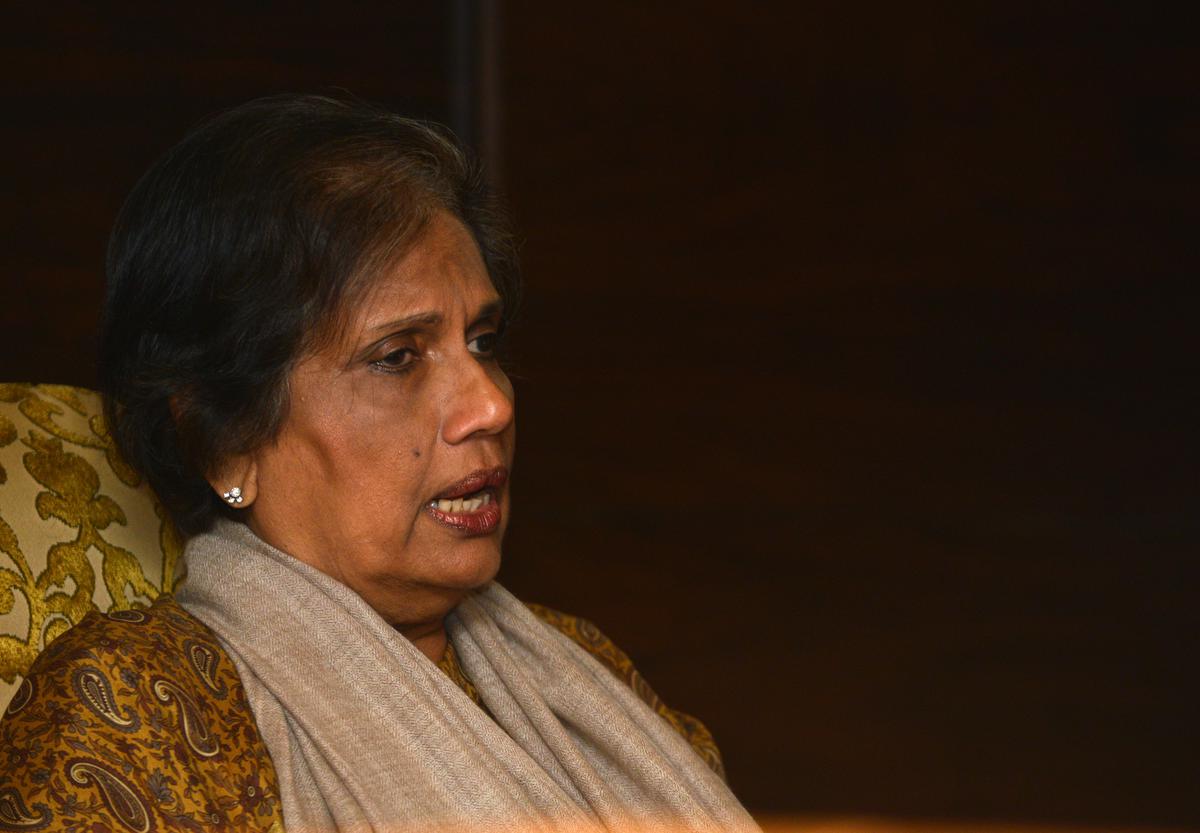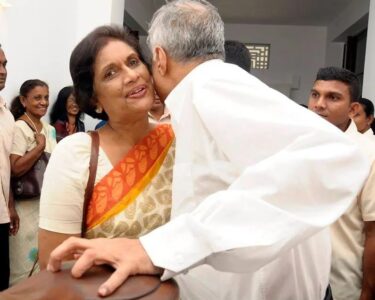In a surprising turn of events, Sri Lanka’s former presidents Maithripala Sirisena and Chandrika Bandaranaike Kumaratunga (CBK) have joined forces, marking a significant shift in the country’s political landscape. The two leaders, who were once bitter rivals, appeared together at a ceremony commemorating the 125th birth anniversary of the SLFP founder and former Prime Minister S. W. R. D. Bandaranaike, held on January 8th at Galle Face Green in Colombo.
This unexpected alliance has sent shockwaves through Sri Lanka’s political circles, raising questions about its motivations and potential implications for the upcoming elections.

A History of Rivalry:
Sirisena and CBK have a long and tumultuous history, marked by periods of cooperation and bitter rivalry. CBK played a key role in Sirisena’s rise to power in 2015, backing him as a candidate against the then-incumbent President Mahinda Rajapaksa. However, their relationship soured soon after, with Sirisena accusing CBK of trying to manipulate him and exert control over the SLFP.
The two leaders have traded barbs and accusations for years, making their recent reconciliation all the more surprising.
Possible Motivations
There are several possible explanations for Sirisena and CBK’s sudden rapprochement. One theory is that both leaders are facing political challenges and see an alliance as a way to shore up their support. The SLFP, once Sri Lanka’s dominant political party, has been in decline in recent years, and both Sirisena and CBK are seen as potential saviors.
Another possibility is that the two leaders have genuinely reconciled their differences and believe that they can work together for the good of the country. CBK, in particular, is known for her pragmatism and willingness to compromise.
Implications for the Future
The implications of Sirisena and CBK’s alliance are still unclear. It is possible that they could unite the SLFP and revive the party’s fortunes. However, it is also possible that their alliance could further fracture the party, as some members may be opposed to the reconciliation.
The upcoming elections in Sri Lanka are likely to be closely contested, and the outcome will hinge in part on the performance of the SLFP. If Sirisena and CBK can successfully unite the party, they could pose a serious challenge to the incumbent government.
Rajapaksa Factor
It is also worth noting that the Rajapaksas, a powerful political dynasty in Sri Lanka, are still a major force in the country’s politics. Mahinda Rajapaksa, the former president and brother of current President Gotabaya Rajapaksa, remains a popular figure among many Sri Lankans.
The Rajapaksas’ response to Sirisena and CBK’s alliance will be interesting to watch. They may try to exploit any divisions within the SLFP or work to undermine the alliance altogether.
Conclusion
The recent reconciliation between Sirisena and CBK is a significant development in Sri Lankan politics. It is too early to say what the long-term implications of this alliance will be, but it is sure to have a major impact on the upcoming elections.







